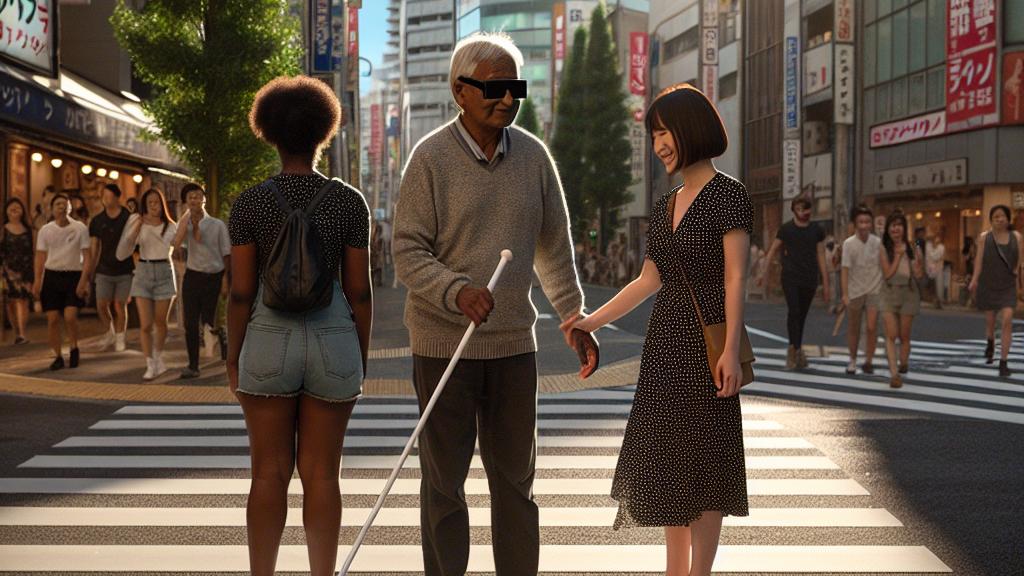When Kindness Meets Camera Pranks: A Crosswalk Controversy!
Overview
- In a busy crosswalk in Ebisu, Japan, a visually impaired individual reached out for help, highlighting the vulnerability of many in our society.
- What felt like a genuine act of kindness turned out to be a hidden camera prank, sparking outrage and debate about ethics in entertainment.
- Public backlash followed fiercely, as people questioned the morality of using compassion as a backdrop for pranks.

The Incident in Japan
Picture this: a sunny day in Ebisu, where the streets hum with life, and a visually impaired person stands at a crosswalk, gripping their cane tightly as they seek help. They hesitate, uncertain but hopeful, when a compassionate passerby rushes in to assist, embodying the very essence of human kindness. Yet, what should have been a touching moment of connection turned into a deceptive spectacle as the passerby—unbeknownst to them—was part of a hidden camera prank designed to capture unsuspecting good Samaritans. This shocking revelation felt like a bucket of cold water, washing away the warm glow of altruism. Instead of being a story of compassion, it revealed a darker side of human interaction. It’s an unsettling thought: how easily goodwill can be manipulated into entertainment for clicks and laughs.
Impact on Public Perception
The immediate fallout from this event was a wave of public outrage, igniting widespread discussions about the boundaries of kindness. Imagine the next time someone reaches out to help, a lingering doubt creeps in—is this a heartwarming moment or just another setup for a cheap laugh? It’s a chilling prospect, suggesting that kindness may one day be viewed with suspicion. Furthermore, vulnerable individuals, particularly those with disabilities, might feel even more isolated, fearing that their struggles are fodder for entertainment—not genuine compassion. As trust in public interactions erodes, we must seriously consider: what does this say about our society? If every act of goodwill is questioned, then genuine connection becomes a rare treasure, obscured by layers of skepticism.
Lessons from the Controversy
This crosswalk incident serves as a critical reminder of the responsibility that comes with producing media. It calls upon content creators to critically reflect on the impact of their work and the narratives they promote. Imagine instead a world where every act of kindness is celebrated, where benevolence is not exploited but rather embraced. We have the power to reshape this landscape! We can highlight stories that honor the dignity of those who give and receive help, creating a culture rich in empathy. Let us strive to ensure that kindness is viewed as the bedrock of humanity, not merely the punchline of a joke. We owe it to ourselves—and to those who need help—to keep the light of compassion shining brightly and to foster an environment where every good deed enhances our collective spirit.

Loading...